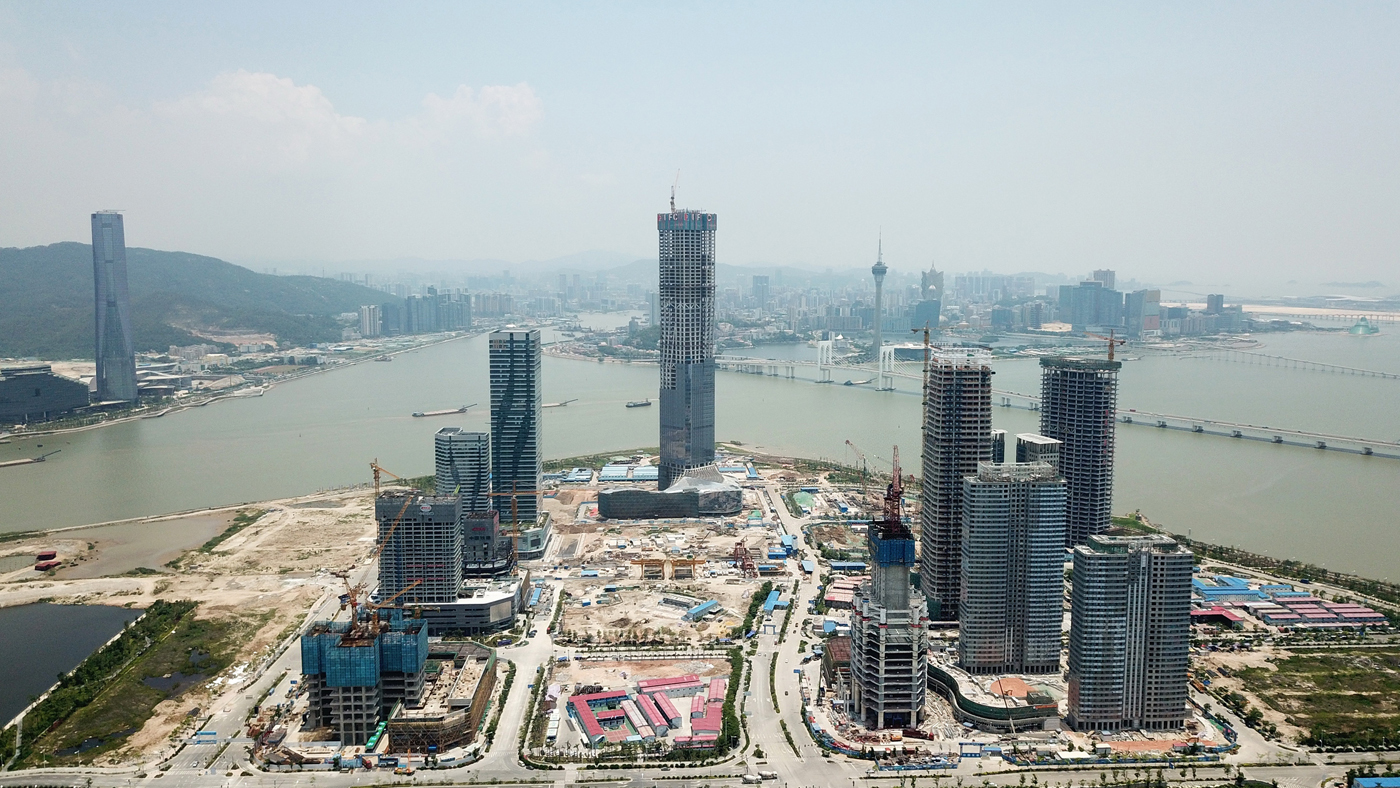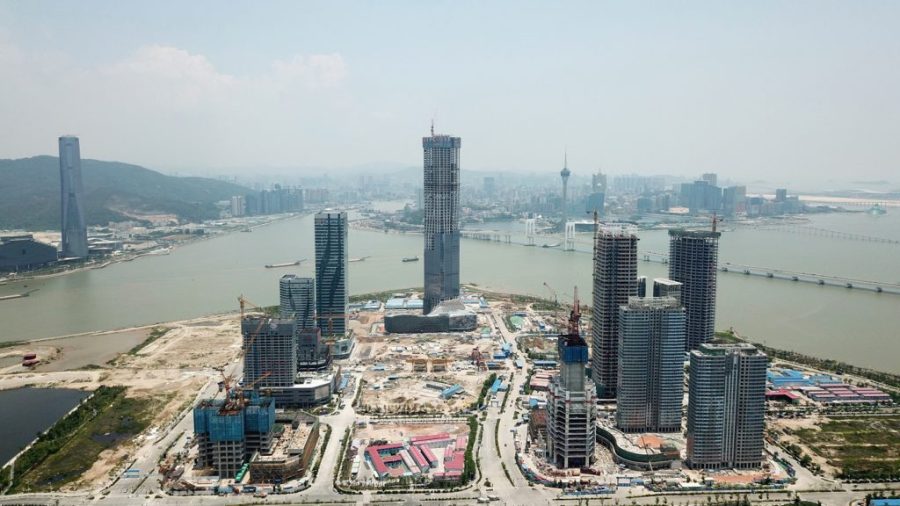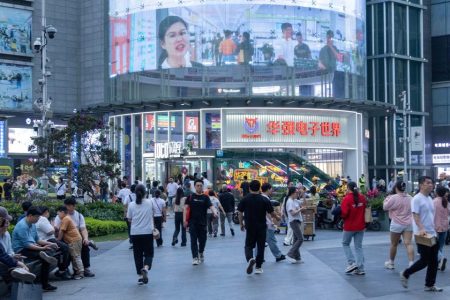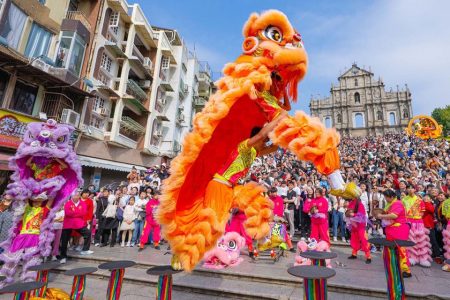China mainland aims to develop Hengqin District into an “international tourism island” in its efforts to further integrate the Guangdong-Hong Kong-Macau Greater Bay Area (GBA), according to a Xinhua report Tuesday.
According to Xinhua, the State Council approved, in principle, Hengqin’s new international status on Monday.
According to the Hengqin District’s official website, Hengqin covers a land area of 106.46-square kilometres.
Much of the island has been reclaimed from the sea since the 1990s.
Hengqin consisted of two islands in the past, Big Hengqin and Small Hengqin, known in Portuguese as Ilha da Montanha and Ilha D.João
Hengqin lies no more than 200 metres from Macau.
The island was designated as a New Area by the central government in 2009 with the aim of enhancing economic ties with Hong Kong and Macau.
Xinhua referred to a statement by the State Council on Monday that the development of Hengqin will promote the moderate economic diversification of Macau and become a demonstration zone for the “deep” integration of Guangdong, Hong Kong and Macau, adding that a free trade pilot zone will also be promoted in the region.
Xinhua noted that in February the central government unveiled the Outline Development Plan for the GBA, aiming to develop the city cluster into a “quality living circle” for living, working, health care, and travelling.
Hengqin New Area Administrative Committee Director Yang Chuan said Tuesday that Hengqin would strengthen its cooperation with Macau for coordinated development, according to government-owned broadcaster TDM.
Yang was interviewed by TDM reporters in Hengqin.
According to TDM, Yang said he believed that developing Hengqin into a tourism island could cooperate with Macau’s mission of becoming a world tourism and leisure centre, in order to provide better conditions for Macau’s economic diversification.
Yang also said to TDM that under the guideline of the GBA Outline Development Plan, Hengqin would speed up its development into an international tourism island and turn Hengqin into a place of “ideal for living, working, and travelling”, Yang said.
According to official figures, Hengqin’s GDP reached RMB18.36 billion (US$2.73 billion) in 2017, an increase of 64 times that of 2009. Fixed asset investment reached RMB41.23 billion (US$6.13 billion), up 21 times, while actual foreign investment has gone up 972 times to US$670 million.
In just the first nine months of 2018, its GDP reached RMB17 billion (US$2.53 billion), an increase of 12 per cent over a year earlier, with fixed asset investment rising 34 per cent to RMB42.3 billion (US$6.3 billion). The figures show that 2,633 Macao and Hong Kong companies have registered in Hengqin, including 157 financial firms. There are 31 projects with Macao and Hong Kong capital, occupying 4.53 sq km and accounting for 33 per cent of the land sold.
Hengqin can provide tens of thousands of hotel rooms, as well as theme parks, resorts, sporting facilities, performance venues, and other non-gaming entertainment for those looking to get out of the casinos.
One major non-gaming facility is due to open later this year: the Fu Yin Sandy Spring Resort, with three hotels and 1,600 rooms. The hot spring resort, which will utilise a nearby natural waterfall, is a US$1-billion investment by a private Dongguan company.
More resort projects will come onto the market in future. The government has authorised reclamation of a further 14.5 sq km off the southern end for construction of small islands that will house resorts similar to those on the Palm Island of Dubai.
The biggest resort project on the island is the Chimelong Ocean Kingdom.
Located at the southern tip of Hengqin, Chimelong is the world’s largest ocean theme park, breaking multiple Guinness World Records upon its opening in March 2014. It includes one of the world’s large aquariums, with whale sharks, beluga whales and dolphins, as well as habitats with polar bears and other exotic animals.
With nearly 10 million visitors in 2017, Chimelong was the only park in the top 15 worldwide not associated with Disney or Universal Studios.
Even with the sprawling ocean theme park, Chimelong has developed only a third of the land allocated to it in Hengqin.
It is building the world’s largest marine science museum, set to open later this year, and a second auditorium with 7,000 seats. The current 2,000-seat venue hosts a nightly circus featuring an array of animal and human performances.(Macaunews)






